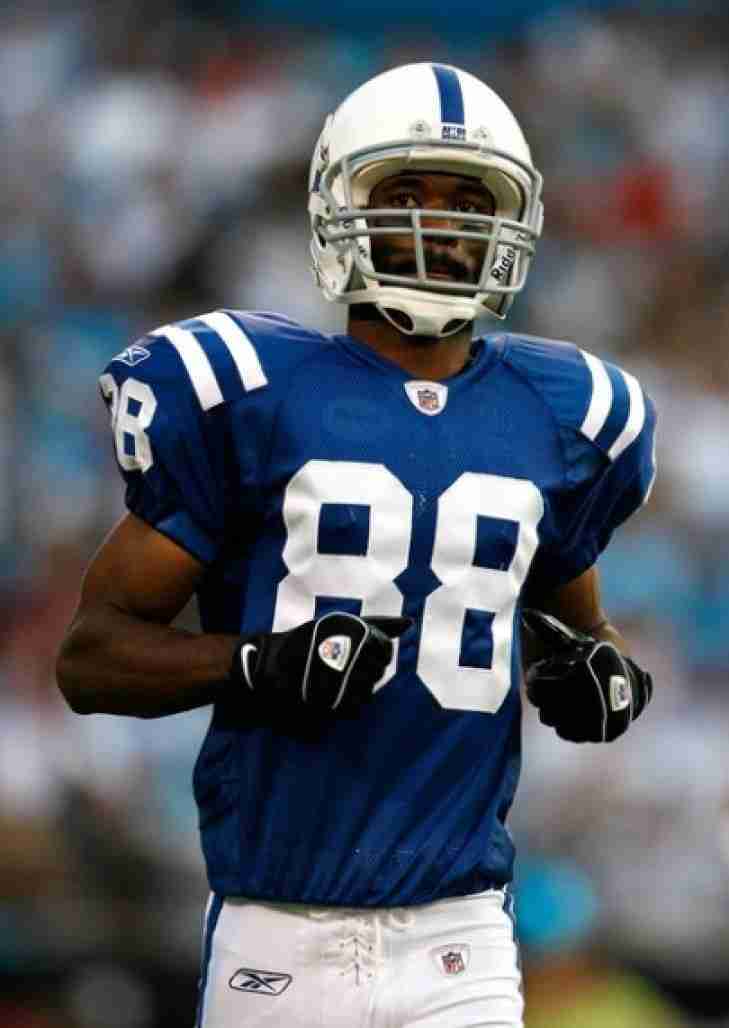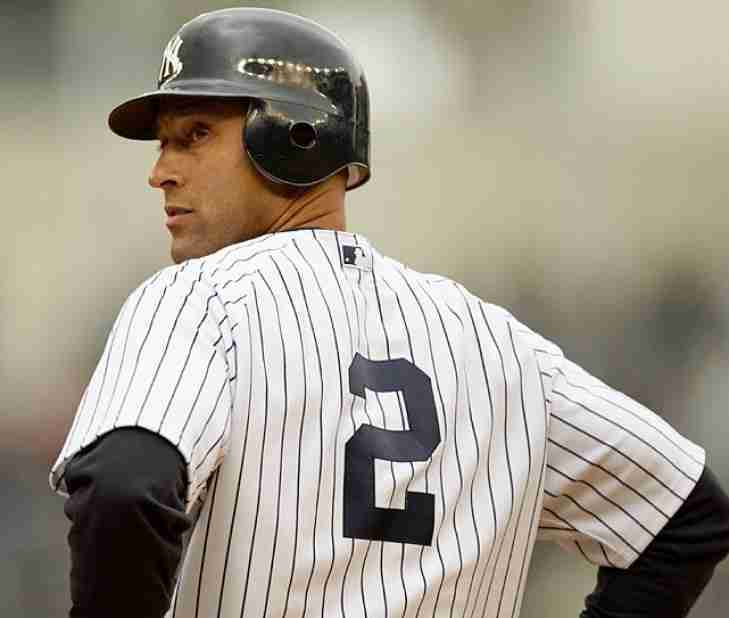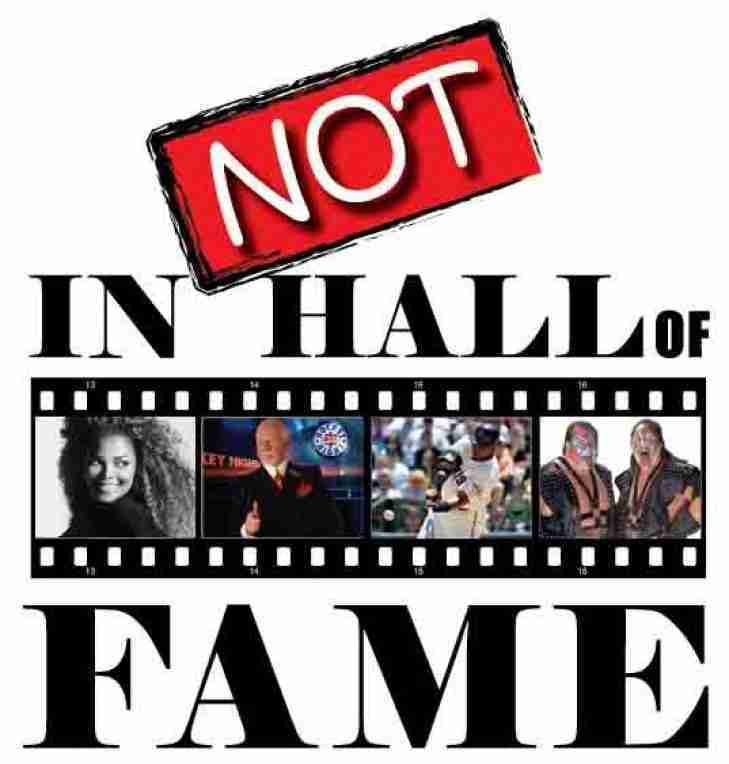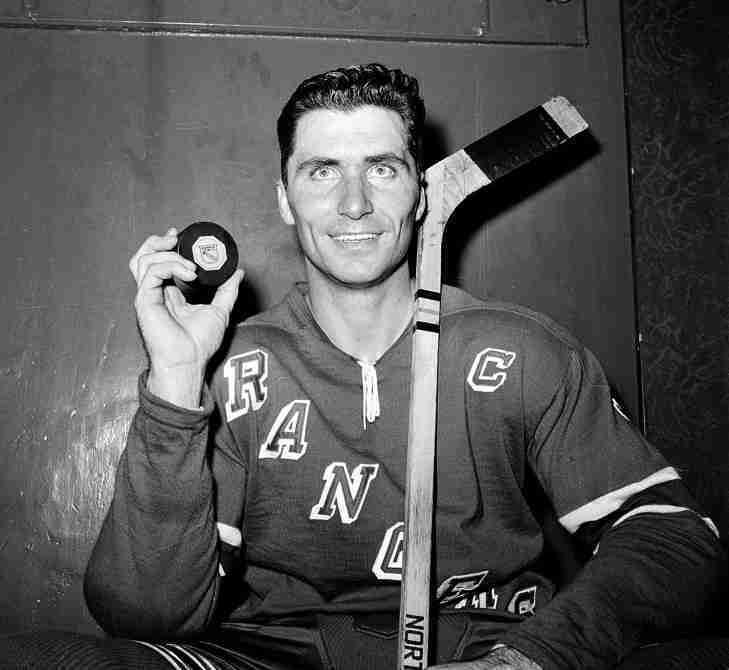
Committee Chairman
Kirk Buchner, "The Committee Chairman", is the owner and operator of the site. Kirk can be contacted at [email protected] .
A look at Marvin Harrison's PFHOF Induction
Feb 29, 2016
Published in
Hall of Fame Debates
Last month, regular contributor, Spheniscus and I debated the Hall of Fame merits of those who were on the Baseball Hall of Fame ballot.
Now that the Baseball Hall of Fame Class of 2016 has announced their class has done the same. We were hopeful to do this prior to the announcement of the actual inductees, but life, as it often does simply got in the way!
Now that the Baseball Hall of Fame Class of 2016 has announced their class has done the same. We were hopeful to do this prior to the announcement of the actual inductees, but life, as it often does simply got in the way!
The 2020 Baseball Futures are up!
Feb 29, 2016
Published in
Not in Hall of Fame News
It is onward and upwards as always for us at Notinhalloffame.com!
We have uploaded another section in Baseball, where the Baseball players who are eligible for the Hall of Fame in 2020 are now up.
This will allow all of you tell us your opinions on these players whose career is already over but are not yet eligible for the Hall of Fame.
Here are those players:
Adam Dunn, a two time All Star who blasted 462 Home Runs.
Alex Gonzalez, a member of the 2003 World Series Championship Team.
Alfonso Soriano, a three time All Star with four Silver Sluggers and over 2,000 Hits and 400 Home Runs.
Bobby Abreu, the exceptionally patient hitter with a career On Base Percentage of .395 and two All Star appearances.
Brad Penny, a two time All Star and 2003 World Series Champion with the Florida Marlins.
Brian Roberts, a two time All Star with over 1,500 career Hits.
Bronson Arroyo, a former Gold Glove winner and World Series Champion with the Boston Red Sox in 2004.
Carlos Pena, a one time All Star who once won the Home Run Title.
Chone Figgins, a one time All Star who was a World Series Champion with the Anaheim Angels in 2002.
Cliff Lee, a four time All Star and the American League Cy Young Winner in 2008.
Derek Jeter, the career New York Yankee who is a five time World Series Champion and fourteen time All Star. Jeter is considered to be a lock for first ballot induction.
Eric Chavez, a six time Gold Glove recipient.
Heath Bell, a three time All Star and former Saves Champion.
J.J. Putz, a one time All Star and one time Rolaids Reliever of the Year.
Jamey Wright, a Pitcher used primarily in middle relief over his eighteen year career.
Jason Bartlett, a one time All Star Shortstop known for his defense.
Jason Giambi, a five time All Star and the 1996 American League MVP.
Joe Saunders, a one time All Star Pitcher.
Jose Valverde, a three time All Star who led his league three times in Saves.
Josh Beckett, a two time World Series Champion (Florida and Boston) who also was named the World Series MVP in 2003.
Kyle Farnsworth, a sixteen year MLB vet used mostly in middle relief.
Lyle Overbay, who led the NL in doubles in 2004.
Marco Scutaro, a one time All Star who won the World Series and the NLCS MVP with the San Francisco Giants in 2012.
Nate McLouth, a one time All Star and one tome Gold Glove winner.
Paul Konerko, a six time All Star and five time Silver Slugger who was the heart of the Chicago White Sox that won the 2005 World Series.
Rafael Furcal, a three time All Star who was a Rookie of the Year and World Series winner with the Atlanta Braves.
Raul Ibanez, a one time All Star who is a member of both the 2,000 Hit and 300 Home Run Club.
Ryan Ludwick, a one time All Star and one time Silver Slugger winner.
I think you all know what we want you to do!
Check out the new section, and cast your votes and offer us your opinions!
We have uploaded another section in Baseball, where the Baseball players who are eligible for the Hall of Fame in 2020 are now up.
This will allow all of you tell us your opinions on these players whose career is already over but are not yet eligible for the Hall of Fame.
Here are those players:
Adam Dunn, a two time All Star who blasted 462 Home Runs.
Alex Gonzalez, a member of the 2003 World Series Championship Team.
Alfonso Soriano, a three time All Star with four Silver Sluggers and over 2,000 Hits and 400 Home Runs.
Bobby Abreu, the exceptionally patient hitter with a career On Base Percentage of .395 and two All Star appearances.
Brad Penny, a two time All Star and 2003 World Series Champion with the Florida Marlins.
Brian Roberts, a two time All Star with over 1,500 career Hits.
Bronson Arroyo, a former Gold Glove winner and World Series Champion with the Boston Red Sox in 2004.
Carlos Pena, a one time All Star who once won the Home Run Title.
Chone Figgins, a one time All Star who was a World Series Champion with the Anaheim Angels in 2002.
Cliff Lee, a four time All Star and the American League Cy Young Winner in 2008.
Derek Jeter, the career New York Yankee who is a five time World Series Champion and fourteen time All Star. Jeter is considered to be a lock for first ballot induction.
Eric Chavez, a six time Gold Glove recipient.
Heath Bell, a three time All Star and former Saves Champion.
J.J. Putz, a one time All Star and one time Rolaids Reliever of the Year.
Jamey Wright, a Pitcher used primarily in middle relief over his eighteen year career.
Jason Bartlett, a one time All Star Shortstop known for his defense.
Jason Giambi, a five time All Star and the 1996 American League MVP.
Joe Saunders, a one time All Star Pitcher.
Jose Valverde, a three time All Star who led his league three times in Saves.
Josh Beckett, a two time World Series Champion (Florida and Boston) who also was named the World Series MVP in 2003.
Kyle Farnsworth, a sixteen year MLB vet used mostly in middle relief.
Lyle Overbay, who led the NL in doubles in 2004.
Marco Scutaro, a one time All Star who won the World Series and the NLCS MVP with the San Francisco Giants in 2012.
Nate McLouth, a one time All Star and one tome Gold Glove winner.
Paul Konerko, a six time All Star and five time Silver Slugger who was the heart of the Chicago White Sox that won the 2005 World Series.
Rafael Furcal, a three time All Star who was a Rookie of the Year and World Series winner with the Atlanta Braves.
Raul Ibanez, a one time All Star who is a member of both the 2,000 Hit and 300 Home Run Club.
Ryan Ludwick, a one time All Star and one time Silver Slugger winner.
I think you all know what we want you to do!
Check out the new section, and cast your votes and offer us your opinions!
We have changed our logo! Deep Purple out, Janet Jackson in
Feb 27, 2016
Published in
Not in Hall of Fame News
It’s that time again for us at Notinhalloffame.com.
As you may have noticed, our main logo always features four people/artists who have been considered by us to be egregious snubs by their respective Halls of Fame. Some of those images have not changed, as hockey broadcaster, Don Cherry has been part of the logo from day one. Some, we don’t expect to change, as we will be very surprised if Barry Bonds will ever be chosen by the Baseball Hall of fame, though surprises do happen, such as when Randy Savage was selected to the WWE Hall of Fame.
Saying all of that, the musician(s) that we have chosen for the Rock and Roll HOF snub of the logo have fared very well.
When our website began in 2009, Alice Cooper was featured as the Rock snub. He would get in shortly after, and we replaced him with Rush, who got in that year in their first year of nomination. Rush gave way to Kiss, who honestly we thought would never get inducted, but sure enough they were nominated and then inducted the first year they were on our logo. Deep Purple, a fixture on our top five since our website’s inception took over and after two years, they were chosen.
Does this mean that we have a magic touch for getting artists in?
Selfishly, we will say yes!
This year, Janet Jackson has now become part of our logo and we have gone with that for three reasons.
1. Your votes have been strong, and she has moved up our ranking more than anyone else in the top 100 over the last three years.
2. The social media clamoring for her induction has been strong, and someone who we consider a friend to the site, Mike Litherland, has led it. If you haven’t checked out his efforts, you can do so here.
3. Aesthetically, it is a good visual. Kraftwerk, who we actually have ranked higher would have been to, but we doubt that the fans of Kraftwerk, or even the band themselves even care. It is a shallow reason, but a reason nevertheless.
So does this mean Janet is now a lock for the Rock and Roll Hall of Fame?
Based on our track record…it could very well be!
As you may have noticed, our main logo always features four people/artists who have been considered by us to be egregious snubs by their respective Halls of Fame. Some of those images have not changed, as hockey broadcaster, Don Cherry has been part of the logo from day one. Some, we don’t expect to change, as we will be very surprised if Barry Bonds will ever be chosen by the Baseball Hall of fame, though surprises do happen, such as when Randy Savage was selected to the WWE Hall of Fame.
Saying all of that, the musician(s) that we have chosen for the Rock and Roll HOF snub of the logo have fared very well.
When our website began in 2009, Alice Cooper was featured as the Rock snub. He would get in shortly after, and we replaced him with Rush, who got in that year in their first year of nomination. Rush gave way to Kiss, who honestly we thought would never get inducted, but sure enough they were nominated and then inducted the first year they were on our logo. Deep Purple, a fixture on our top five since our website’s inception took over and after two years, they were chosen.
Does this mean that we have a magic touch for getting artists in?
Selfishly, we will say yes!
This year, Janet Jackson has now become part of our logo and we have gone with that for three reasons.
1. Your votes have been strong, and she has moved up our ranking more than anyone else in the top 100 over the last three years.
2. The social media clamoring for her induction has been strong, and someone who we consider a friend to the site, Mike Litherland, has led it. If you haven’t checked out his efforts, you can do so here.
3. Aesthetically, it is a good visual. Kraftwerk, who we actually have ranked higher would have been to, but we doubt that the fans of Kraftwerk, or even the band themselves even care. It is a shallow reason, but a reason nevertheless.
So does this mean Janet is now a lock for the Rock and Roll Hall of Fame?
Based on our track record…it could very well be!
RIP: Andy Bathgate
Feb 26, 2016
Published in
Not in Hall of Fame News
It was announced today that Hockey Hall of Fame inductee, Andy Bathgate, died today at the age of 83.
Bathgate began his 17 year career with the New York Rangers, and in the 1950’s, the forward would become the team’s star and primary scoring threat. Bathgate would be a Second Team All Star in the 1957/58 season and was the runner-up for the Hart Trophy, but the season after he would win the Hart and would set a personal best with 88 Points.
His star would continue to shine with the Rangers and he would tie for the league lead in Points scored (though losing the Art Ross, as he did not have the most Goals) in the 1961/62 season and would earn his second and final First Team All Star appearance.
Despite his individual stardom in New York, the team around him was not great and a trade to the Toronto Maple Leafs paid dividends for both Bathgate and the Leafs as he helped them win the Stanley Cup in 1964. Bathgate would finish his career with the Detroit Red Wings and the expansion team, the Pittsburgh Penguins, and a brief stint in the WHA following a retirement.
Bathgate retired as a Point per Game player and was inducted into the Hockey Hall of Fame in 1979.
We here at Notinhalloffame.com would like to extend our condolences to the friends and family of Andy Bathgate at this time.
Bathgate began his 17 year career with the New York Rangers, and in the 1950’s, the forward would become the team’s star and primary scoring threat. Bathgate would be a Second Team All Star in the 1957/58 season and was the runner-up for the Hart Trophy, but the season after he would win the Hart and would set a personal best with 88 Points.
His star would continue to shine with the Rangers and he would tie for the league lead in Points scored (though losing the Art Ross, as he did not have the most Goals) in the 1961/62 season and would earn his second and final First Team All Star appearance.
Despite his individual stardom in New York, the team around him was not great and a trade to the Toronto Maple Leafs paid dividends for both Bathgate and the Leafs as he helped them win the Stanley Cup in 1964. Bathgate would finish his career with the Detroit Red Wings and the expansion team, the Pittsburgh Penguins, and a brief stint in the WHA following a retirement.
Bathgate retired as a Point per Game player and was inducted into the Hockey Hall of Fame in 1979.
We here at Notinhalloffame.com would like to extend our condolences to the friends and family of Andy Bathgate at this time.





